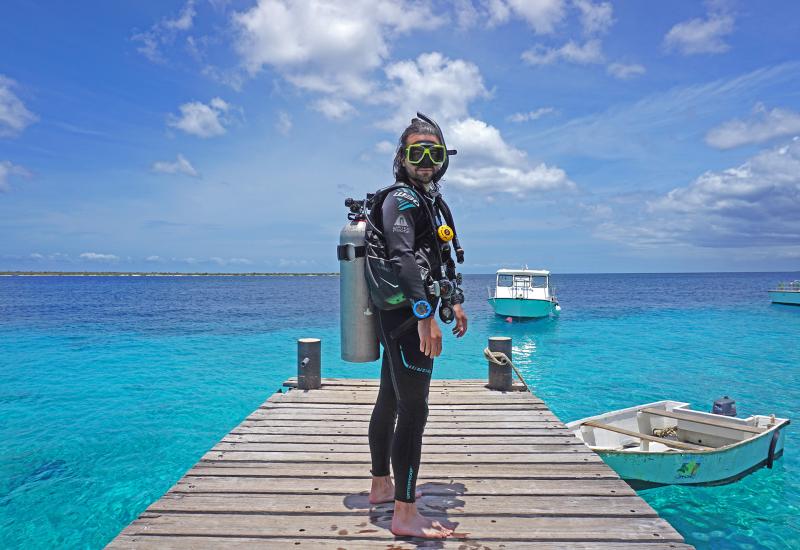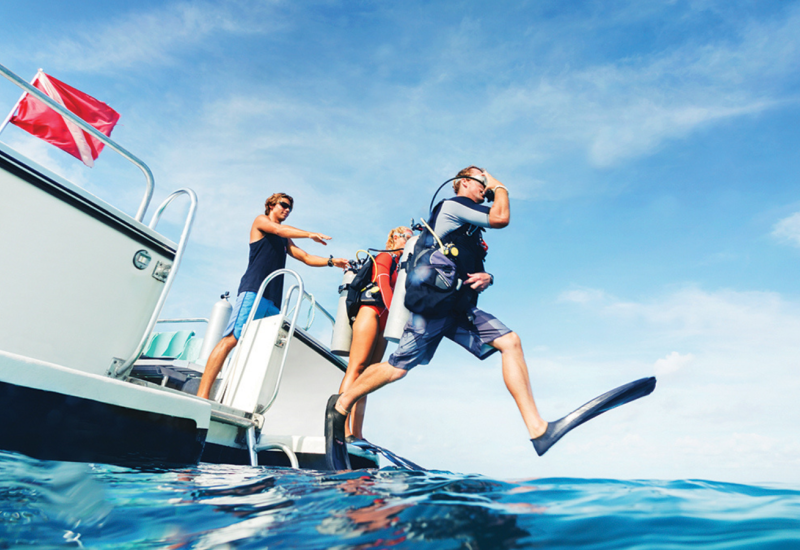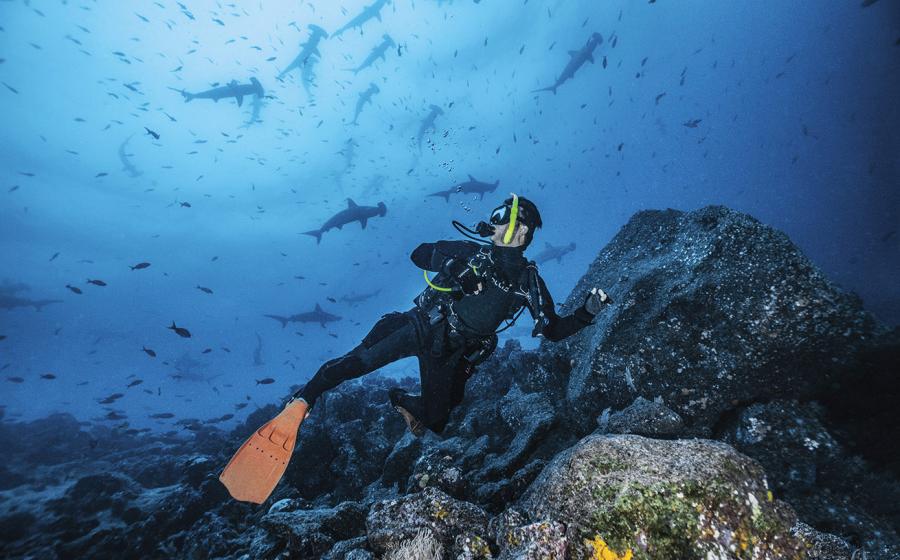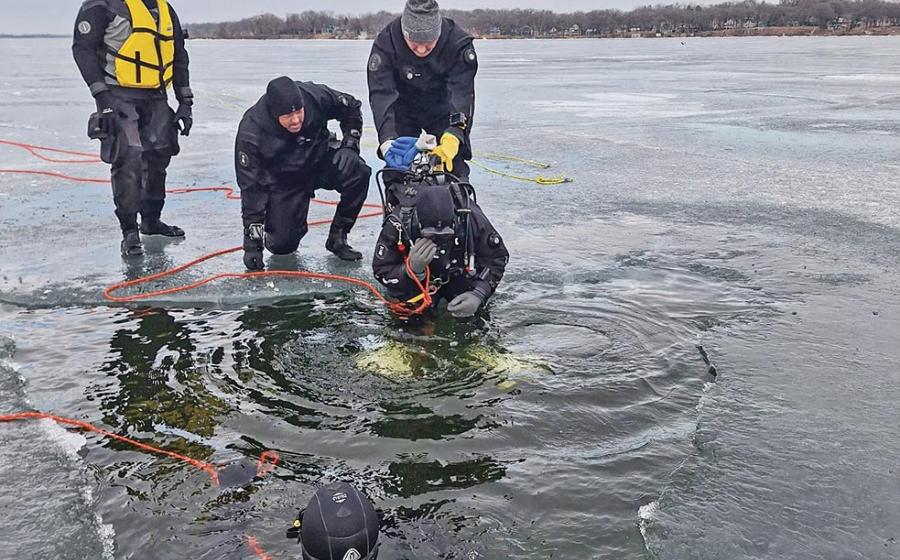Dive Training: Air Embolism
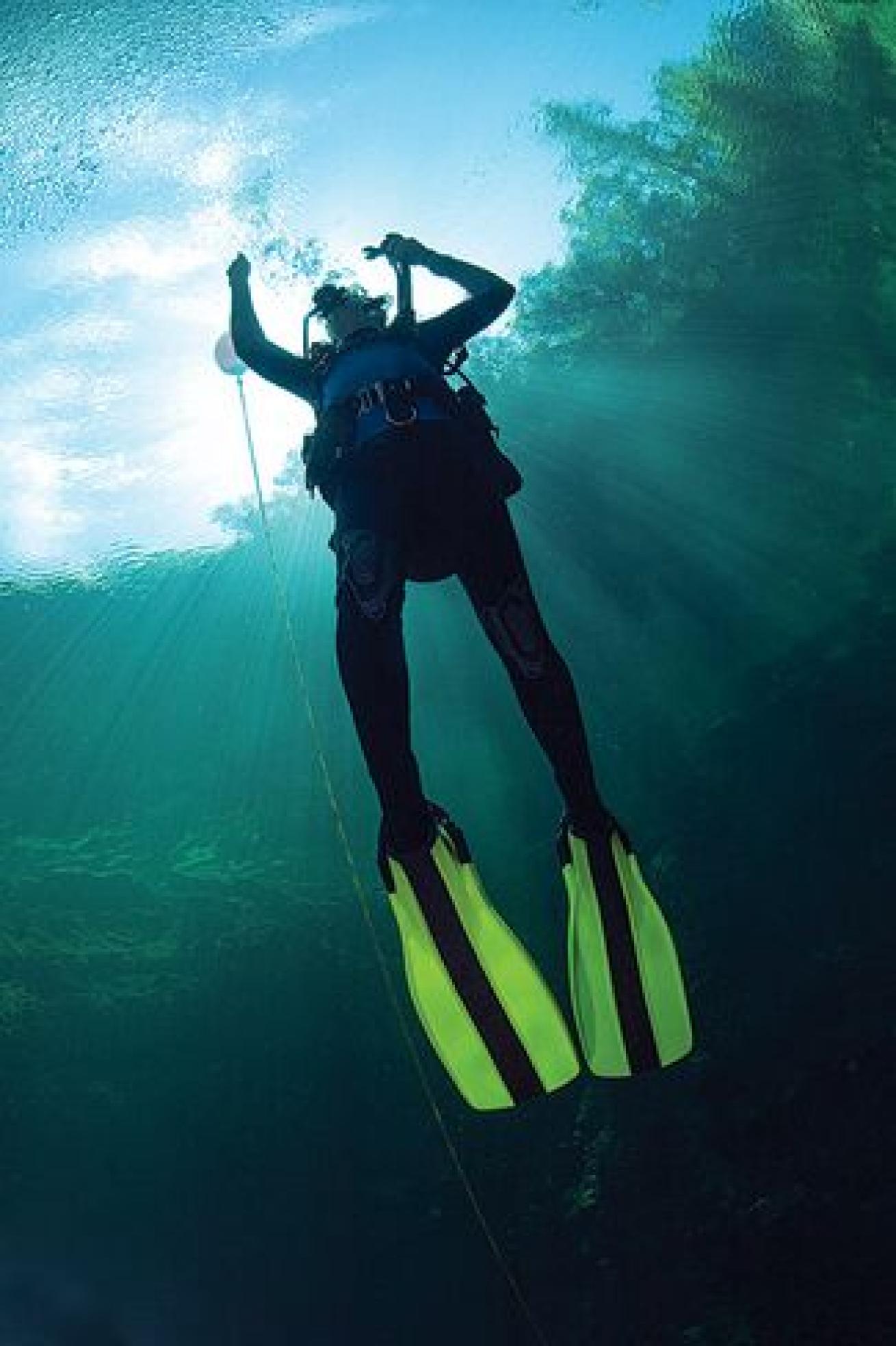
Jill HeinerthDiving Doc
Q: I heard a lot about air embolism during my certification class. What causes it, and how can it be avoided?
A: Decompression illness, or DCI, is a term used to describe illness that results from a reduction in the ambient pressure surrounding a body. A good example is what happens to your body when you're surfacing after a dive. DCI encompasses two diseases, decompression sickness (DCS) and arterial gas embolism (AGE). DCS is thought to result from bubbles growing in tissue and causing local damage, while AGE is caused by an overexpansion injury to the lungs, resulting in gas bubbles entering the circulation and blocking blood flow to vital organs.
Symptoms include difficulty breathing or respiratory failure, sudden loss of consciousness and cardiac arrest. Gas expands during ascent, so if a diver fails to exhale properly, air spaces in the lungs may overexpand and rupture. Gas can then move via the bloodstream to critical organs like the heart, brain and kidneys.
Related Reading: What Happens if You Miss a Decompression Stop?
An AGE is an emergency situation, and often the only way to stabilize a diver is recompression in a hyperbaric chamber while administering pure oxygen. AGE is considered the more serious form of DCI. In some cases the diver may have made a panicked ascent, or he may have held his breath during ascent. However, AGE can occur even if ascent appeared completely normal, and pulmonary disease such as obstructive lung disease may increase the risk of AGE.
The most dramatic presentation of air embolism is the diver who surfaces unconscious and remains so, or the diver who loses consciousness within 10 minutes of surfacing. In these cases, a true medical emergency exists, and rapid evacuation to a treatment facility is paramount.
A diver who ascends rapidly while holding his breath is certainly at risk; additional risk factors for AGE include asthma and emphysema. Buoyancy control and comfort in the water go a long way toward preventing AGE.
Related Reading: How Important Is Your Dive Medical Questionnaire?


